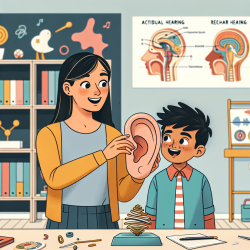Introduction
In a world where technology connects us more than ever, loneliness remains a pervasive issue, impacting individuals across all age groups, including children. The research article "Why Loneliness Interventions Are Unsuccessful: A Call for Precision Health" by Akhter-Khan and Au (2020) sheds light on why current interventions fail and proposes a precision health approach to address loneliness effectively. This blog explores how speech-language pathologists and other practitioners can leverage these insights to improve outcomes for children.
Understanding the Complexity of Loneliness
Loneliness is not a one-size-fits-all problem. It is a complex and heterogeneous construct that varies across individuals and contexts. The research highlights that interventions often fail because they do not consider this complexity. For practitioners working with children, this means recognizing that each child's experience of loneliness is unique and requires tailored interventions.
Precision Health: A Targeted Approach
The concept of precision health involves creating interventions that are tailored to the individual's specific needs, contexts, and experiences. This approach is particularly relevant for children, who may experience loneliness differently based on their developmental stage, social environment, and personal circumstances. By adopting a precision health approach, practitioners can develop more effective strategies to address loneliness in children.
Leveraging Technology for Better Outcomes
Technology plays a crucial role in the precision health approach. Digital tools and platforms can help practitioners gather data on a child's social interactions and emotional well-being, providing insights that inform personalized interventions. For instance, online therapy platforms like TinyEYE can utilize data analytics to track a child's progress and adjust interventions as needed, ensuring that they receive the right support at the right time.
Moving from Treatment to Prevention
The research emphasizes the importance of shifting from reactive treatment to proactive prevention. For children, this means implementing interventions early, before loneliness becomes a chronic issue. Practitioners can focus on building social skills, fostering supportive relationships, and creating inclusive environments that reduce the risk of loneliness.
Conclusion
As practitioners, embracing a precision health approach to loneliness can lead to more effective interventions and better outcomes for children. By recognizing the complexity of loneliness, leveraging technology, and focusing on prevention, we can help children build strong social connections and improve their overall well-being. To read the original research paper, please follow this link: Why Loneliness Interventions Are Unsuccessful: A Call for Precision Health.










